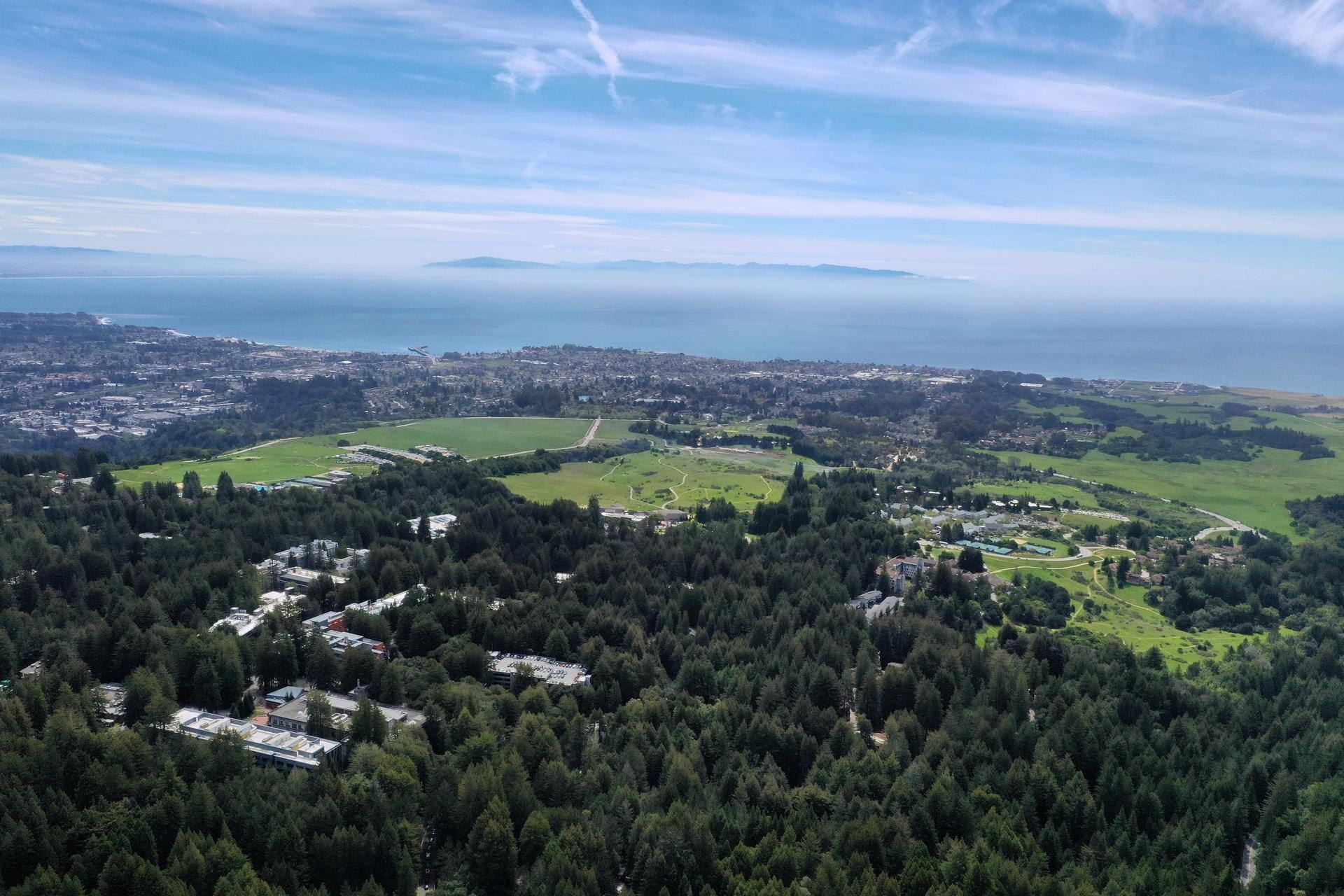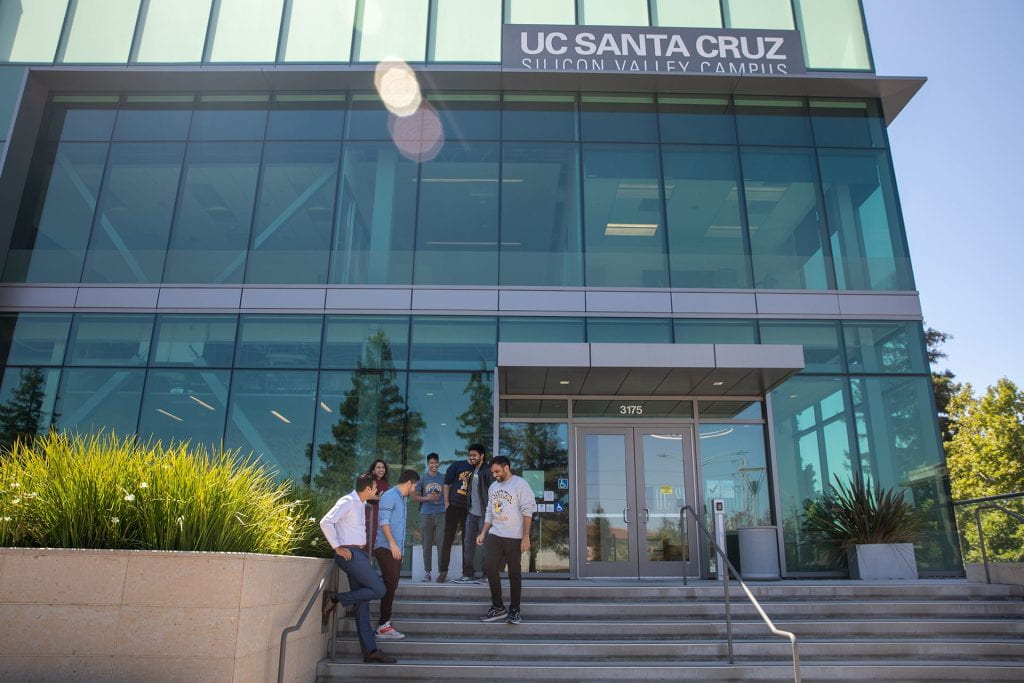
Virtual Events
Virtual Events
Wherever you live, connect with UC Santa Cruz by joining us for virtual events. Engage in meaningful conversations, gain professional insights, or network with fellow Slugs, gain professional insights, or simply catch up with fellow Slugs—all from the comfort of your own home.

Slugs & Steins
Slugs & Steins is a monthly series of informal discussions highlighting UC Santa Cruz’s amazing faculty members. Talks are held on the 2nd Monday of each month with topics ranging from organic artichokes to endangered zebras, self-driving cars to Shakespeare.
All are welcome, and audience participation is encouraged. We encourage you to share the link far and wide as slugs and friends from around the world may join us.

Career development webinars
Whether you’re exploring your next move or sharpening the skills you already have, our virtual career development programs are here to help you grow. Join live, online workshops and webinars led by industry professionals and career experts.

Kraw Lecture Series
The Kraw Lecture Series in Silicon Valley is made possible by a generous gift from UC Santa Cruz alumnus George Kraw (Cowell ‘71, history and Russian literature) and Raphael Shannon Kraw. The lecture series features acclaimed UC Santa Cruz scientists and technologists who are grappling with some of the biggest questions of our time.
These talks are hybrid, free, and open to the public. Attend in person at UC Santa Cruz Silicon Valley extension or via livestream.

February 2026
Kings of Infinite Space: Courageous Compassion Among Men in Soledad Prison
Virtual Event
John Brown Childs
Monday, February 9
6:30 p.m. – 8:00 p.m
When I reflect on the expansively creative, compassionate, and transformational minds and actions of the incarcerated men with whom I have worked as a volunteer teacher of what I call “transcommunal peace and cooperation,” for some twenty years first in DVI Prison, and mostly Soledad Prison, the central image that strikes me is the first part of Hamlet’s statement, in the Shakespeare play, wherein he says, “I could be bounded in a nutshell and count myself king of infinite space….” The men with whom I work, despite their incarceration in narrow, constraining, routinized circumstances, are nonetheless able to reach out to, and draw from a wide and deep universe of humane love for all. Their organizing group, Cemanahuac (an Indigenous Nahuatl word meaning “One World”-all races, cultures, faiths, regions, and perspectives); is the foundation for the success of transcommunality. My book Transcommunality, from the Politics of Conversion to the Ethics of Respect, (Temple University Press, 2003), that is the basis for my teaching in Soledad and elsewhere, emphasizes ways of achieving mutual respect among diverse, even opposing vantage points, with an emphasis on being able to disagree over key matters while still working together. The concept of “transcommunality” is rooted in the brilliant, ancient Indigenous philosophy of the Haudenosauunee (“Iroquois”) Peacemaker, Deganawidah. Similarly, rather than being simple stereotyped negatives; these Soledad men are positives, who are providing important foundations for building bridges in a time of overall societal division, and emphasizing, in the midst of the national cauldron of hate, the healing power of love.
Speaker

John Brown Childs is Distinguished Emeritus Professor of Sociology at the University of California, Santa Cruz. He was born in 1942, in a public housing project, in the Roxbury section of Boston. In 1963, he co-organized a group of students from the University of Massachusetts, going to the “March on Washington for Jobs and Freedom” where MLK delivered his famous “I have a dream speech.” In 1965, he took part in the Civil Rights Movement in Montgomery, Alabama as a member of “Friends of SNCC”— the Student Non-violent Coordinating Committee. As a partner with the community organization Barrios Unidos, he has spent the past twenty years doing volunteer teaching and speaking on peacemaking and “transcommunal cooperation” in Soledad Prison, where he works with the diverse “Cemanahuac One-World Cultural Group” of incarcerated men. He is the author of numerous works, including the book Transcommunality, from the Politics of Conversion to the Ethics of Respect . This book, rooted in the ancient philosophy of the early 14th century Indigenous Haudenosaunee (“Iroquois”) Peacemaker, Deganawidah, is central to his peace teaching work in Soledad Prison. In 1997, he was awarded the Fulbright Foundation’s “Thomas Jefferson Chair of Distinguished Teaching” which he held in the Netherlands at the University of Utrecht. In 2019 he received the University of California, Social Science Division’s Distinguished Emeriti Faculty” award. In 2022, he earned the University of California’s system-wide highest award for emeriti faculty “The Constantine Panunzio Distinguished Emeriti Award.” Of African-Madagascan and Native American descent, he is, through his mother’s side of the family, an enrolled member, of the Masachoosut (Big Hills) community of Indigenous People, after whom the state is named, and on whose tribal land, his birthplace Boston, now sits.
Questions? Please contact University Events at specialevents@ucsc.edu.